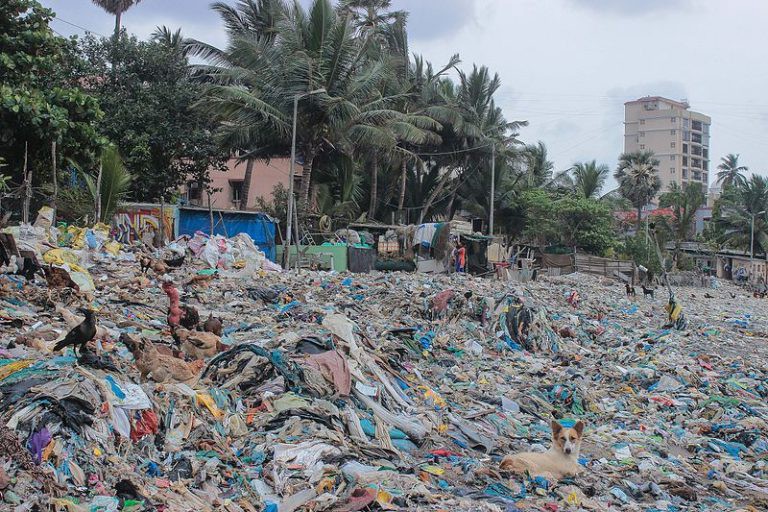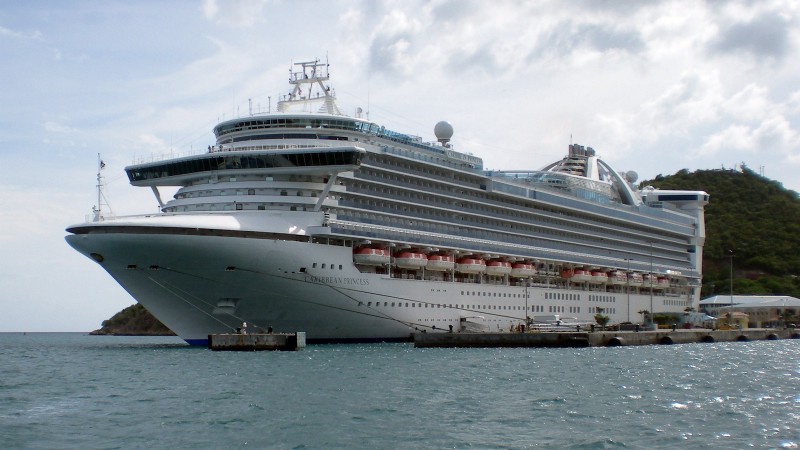The Outlaw Ocean, Part Three: Illegal Dumping
The outlaw ocean, a space apart, hidden from view, a place of rampant criminality and exploitation. This week we offer part three of a four-part series devoted to The Outlaw Ocean, a new book by award-winning New York Times investigative journalist Ian Urbina.

“For centuries,” Urbina writes, “humanity has viewed the ocean as a metaphor for infinity. The assumption was — and frankly still is for many people — that the enormity of the sea came with a limitless ability to absorb and metabolize all.”
“The cruise ship industry is one of the more bizarre creations of modern society, a floating jumble of contradictions. It peddles freedom and exploration, but the actual experience is designed to be predictable, choreographed, and familiar… The ships have grown so large that they have become floating cities — holding as many as five thousand passengers — and as with all cities there are parts of them that people would rather not know about… Despite their image as safe and squeaky-clean, family-friendly getaways on the high seas, these cruise liners are often massive polluters…Cruise liners produce millions of gallons of oily water. This is the runoff of lubricants and leaks that drip from the ship’s many diesel generators, air compressors, main propulsion engines, and other machines that drain into the ship’s bilge tanks. Other liquid wastes accumulate too. ‘‘Black water’ refers to sewage from hundreds of toilet flushing day in and day out. ‘Gray water’ comes from washing dishes and clothing…or from slimy food scraps and grease from the ship galleys and restaurants. Some of these liquids can be released into the ocean after light treatment, but ship engineers are responsible for ensuring that none of the nastiest fluids get discharged. Sometimes, though, these engineers and their companies resort to magic pipes to make those fluids disappear.”
The Caribbean Princess, owned by Carnival Cruise Lines, provides an example, found guilty of such dumping through secret outlets revealed by videos and whistleblower accounts. In 2016, prosecutors affirmed the facts, and a US federal judge found Carnival had “high consciousness of guilt” and levied a $40 million fine.
Urbina writes, “A hundred years ago, what happened on the Caribbean Princess would have been a non-issue…The practice of ships dumping oil and other waste at sea was perfectly legal for most of maritime history. And dump we did. After World War II, Russia, the UK, and the United States loaded about a million tons of un-exploded mustard gas bombs and other chemical munitions onto ships, which were dispatched offshore to scuttle the material overboard.”

“Well into the twentieth century the rhyming mantra among scientists was dilution is the solution for pollution. As a result, the more toxic the waste, the more likely the ocean would be its final resting place. More than a dozen countries…dumped nuclear sludge and unwanted reactors, several still containing radioactive fuel, into the Arctic, the North Atlantic, Southeast Asia, and off the coast of Africa…And yet, for all the detritus pitched overboard, the worst ocean pollution gets there by air or directly from land. Trash blown from streets and landfills ends up first in inland waterway before making its way downstream to the sea. Much of the rubbish is made of plastic…”
“Airborne pollution is a less visible but even more destructive form of dumping. Over the past two centuries, the concentration of mercury in the top three hundred feet of the ocean has triples because of human activity, especially the burning of coal. Likewise, carbon dioxide levels in the air have risen 25% since 1958. A great deal of this extra carbon has dissolved into the ocean, thereby dangerously spiking carbon levels…to create carbonic acid and perilously high acidity levels… affecting marine life and ocean ecosystems, dissolving the shells of many creatures, and leading to hazardous mercury levels in some types of fish.”
Urbina concludes, “The real crime of ocean dumping…is that it is barely seen as a crime.” And this, of course is the crux of the matter. If there is no consequence to an action, no accountability, then there is no failed responsibility, no guilt, no regulation, no enforcement, no change to follow, no mitigation of existing practice, and no shift away from destructive practice to constructive purpose. The Outlaw Ocean reveals just how deep and wide the problem is, as wide and deep as the ocean itself, finite and threatened.
- - -
PETER NEILL is founder and director of the W2O and is author of The Once and Future Ocean: Notes Toward a New Hydraulic Society. He is also the host of World Ocean Radio, a weekly podcast addressing ocean issues, upon which this blog is inspired.
- Login to post comments
-


